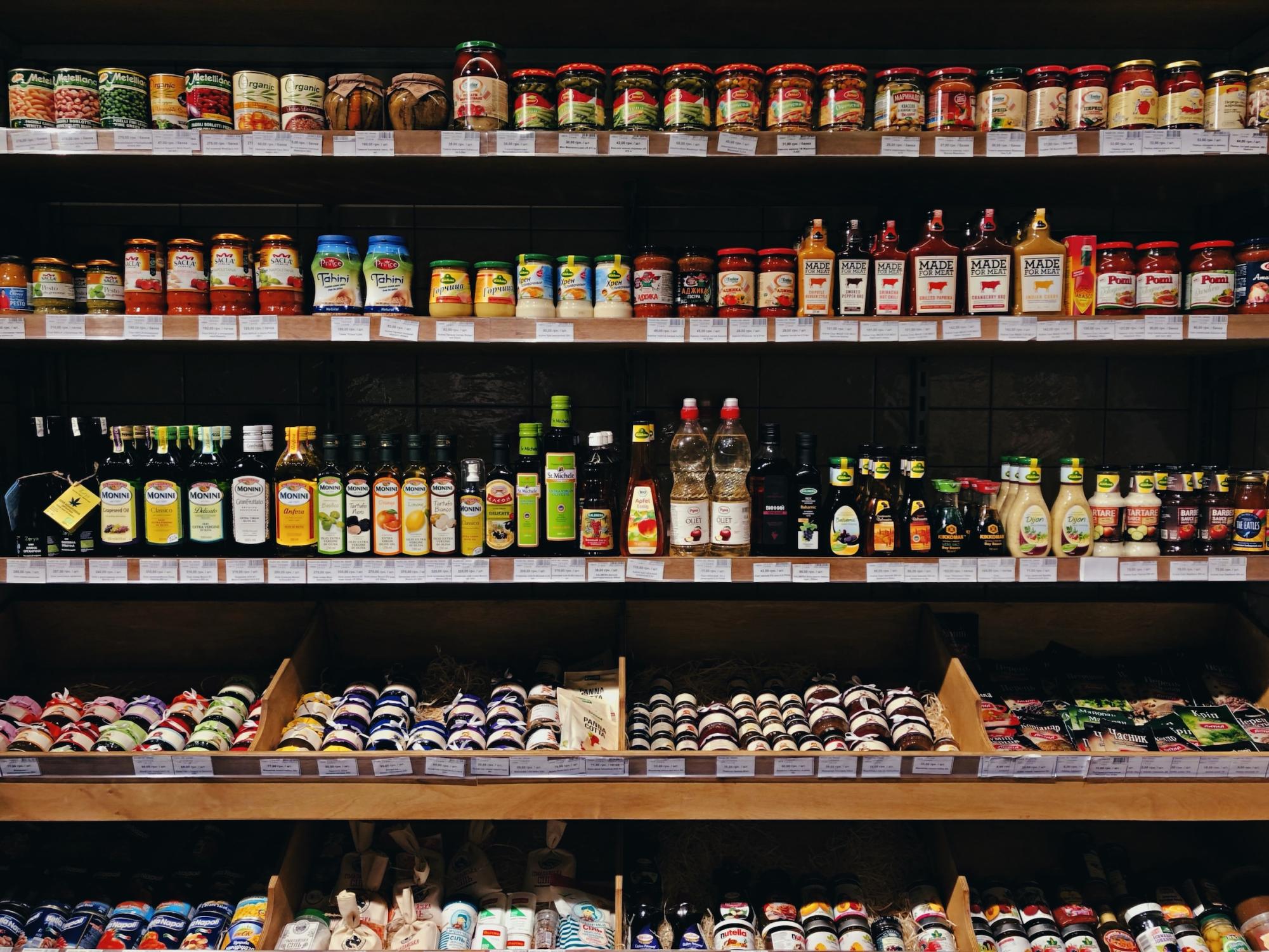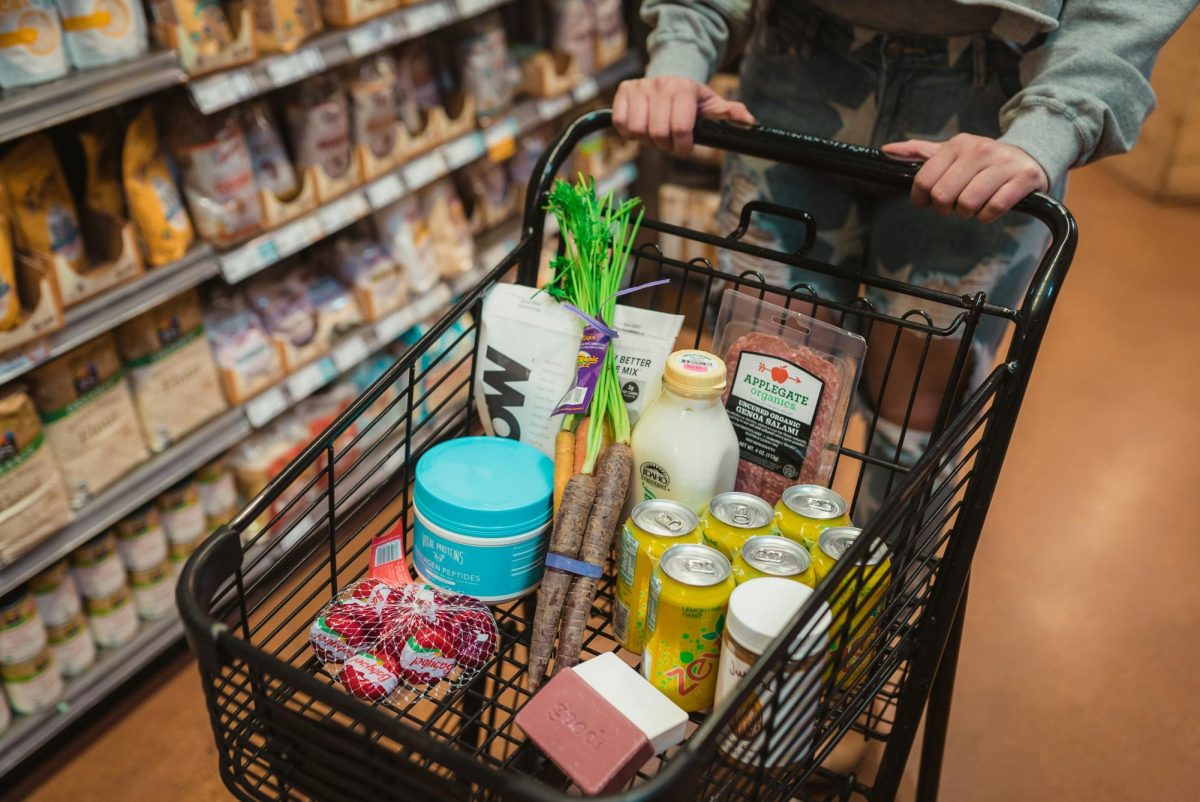(This story was originally published in The Elevator in June, 2022.)
Food insecurity plagues many families, of those families there are people that you wouldn’t even realize are struggling to find meals. Many people believe that the only people that face problems with food insecurity are homeless people or just individuals in extreme poverty. This issue isn’t widely addressed and people aren’t educated about it making it worse than it should be.
A person who is food insecure either doesn’t have the financial means to access food or they have no physical access to food.
There are many reasons why people have trouble finding food which makes it way harder to help fix this issue. Food security can be affected by how the economy fluctuates such as the inflation rates or an abundance of food waste by the people who have no trouble with food.
According to Shannon Caplan, an expert in community food systems and food security at Oregon State University, “Poverty rates are higher in families with younger children.”
“Food insecurity for families with children is almost always higher than those who don’t have children,” Caplan said.
This problem is widely affecting children and their families making it harder for them to enjoy the luxuries of life because they are constantly worried about finding their next meal.
The Unexpected Victims
A big part of food insecurity are the people who are struggling to find food but aren’t really recognized.
College students are almost always ignored because people think if they can afford going to college then they can pay for their basic necessities, which isn’t always the case. College students should be acknowledged more because they aren’t always eligible for programs that would be a big help to them.
“There’s homeless college students, there are college students without access to enough food, there are more food pantries showing up on college campuses to address those needs,” Shannon Caplan said.
“College students often aren’t eligible for SNAP and SNAP is a program that often keeps people from being food insecure so when you don’t have access to those programs you are often vulnerable,” Caplan said.
College students should be represented more in this aspect because being food insecure means that they will have worse overall health since they are consuming nutrient poor meals.
Academic research from Oregon State University shows that in the previous year 59% of students reported being insecure at some point in the year. Further analysis shows that racial and ethnic minorities are more likely to skip meals or go hungry and it suggests that students who don’t have access to enough food are more likely to have poor grades or health.
Also, people who are convicted of a drug felony are made eligible for SNAP and maybe people believe this is unfair for people trying to better themselves.
Shannon Caplan said, “In the past if you had a felony drug conviction at any time you were no longer eligible for SNAP.”
This can be unfair because people who have a felony conviction will find it very hard to get a job and without SNAP it becomes nearly impossible to find nutritious meals. Once you have a felony on record it makes your life harder even if you are trying to clean up your life.
“There were folks who had a felony drug conviction, were clean, sober and trying to put their life on the straight narrow again, but couldn’t afford food, so they got arrested for stealing food because they weren’t eligible for programs,” Caplan said.
Has Food Insecurity Improved?
Oregon has been very proactive in food security compared to other states as there have been some improvements in the last decade. A big part of these efforts has been through Oregon making SNAP more accessible, which is helping offset food insecurity for people who apply.
This also increases the amount of children who are eligible for free or reduced meals which helps families in need even more.
Although Oregon has made many efforts to try to keep the food insecurity situation under control, the pandemic has caused a lot of remaining issues that are still present today. The pandemic has caused food inflation rates to increase making food harder to get and making more families food insecure.
According to a Oregon State University report by Mark Edwards, “After the COVID-19 Pandemic began, by May of 2020 the insecurity rates had increased to a level never experienced before in Oregon, at roughly 20% of households or nearly one million Oregonians. The study at Oregon State University concluded that the food insecurity rate was in the range of around 25% for 2020.”
This means that there is still work to be done in Oregon to help the growing issue of food insecurity and the pandemic is one of the worst things that affected food insecurity.
Supplemental Nutrition Assistance Program (SNAP)
SNAP widely helps families who are food insecure by providing nutrition benefits to families so they can purchase food. This program has been highly effective in reducing food insecurity by providing short and long term benefits to families
Although SNAP has been widely effective in reducing food insecurity there is a negative connotation around applying for government programs. Many people in this country have the mindset where they have to pull themselves up from the bottom without help.
This is an unhealthy mindset because people who work full time on minimum wage are still eligible for SNAP and are still at risk for food insecurity because the minimum wage hasn’t been able to keep up with inflation rates.
To apply for SNAP you must meet one of a few requirements. These requirements in Oregon include, having a bank account balance under $2,001, having a current bank account balance under $3,001 who share a household with a person who is disabled or a person age 60 or above.
There are also annual household income requirements based on how many people live in the household and the total annual household income.
The Future of Food Insecurity
Food insecurity will almost always be a thing because there are just not enough meals to go around but there still are ways to help this increasing issue.
Food waste is a big factor of food insecurity because people who can afford food will throw away perfectly good food that others could eat. An example of this is a person throwing away a banana due to a bruise that they don’t like.
According to the official website of the State of Oregon, “Of all food waste thrown away by households, 71 percent could have been eaten (i.e., it was not bones, shells, peels, etc.). On average, Oregon households throw away 6.3 pounds of food per week (or 2.3 pounds per capita). Fruits and vegetables are the most commonly discarded food that could have been eaten.”
Cutting down on food waste not only in Oregon but in the rest of the country could lead to more food being distributed to people in need. Food that is perfectly good and edible should be given to people that need it.
Also, low-income families will always be at risk for food insecurity no matter what and it’s difficult to help a lot of them. This is because a lot of families have other things to pay for which makes it hard to buy food.
“When you start to factor in the cost of medicine and the cost of health insurance it takes a hit at their wallets. You generally want to pay for your medicine and your rent so you look for places where you can cut corners and that ends up to be food,” Caplan said.
This means that there will always be food insecurity when there are families in poverty but there is still more to be done to help those in need.







